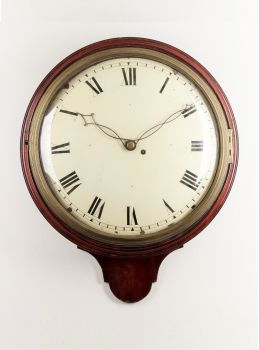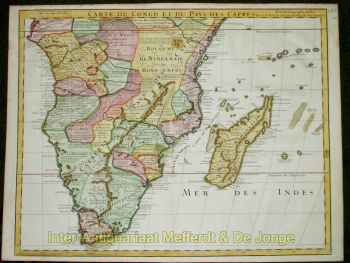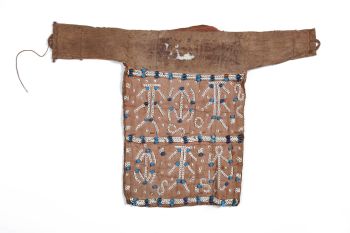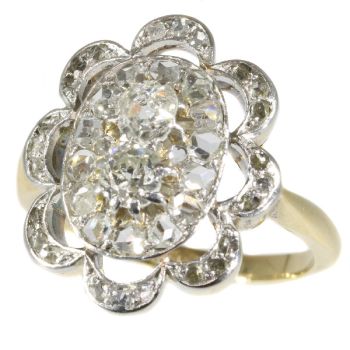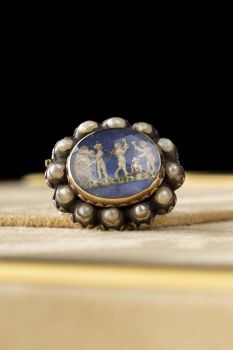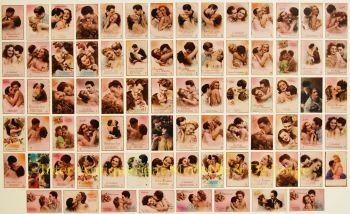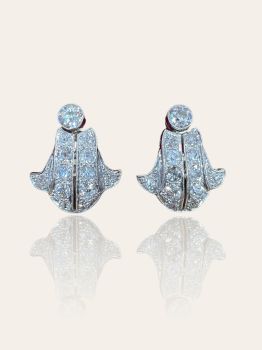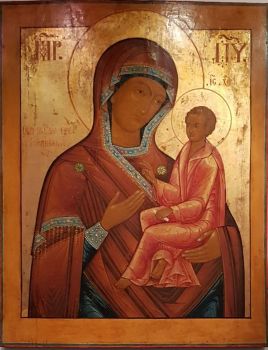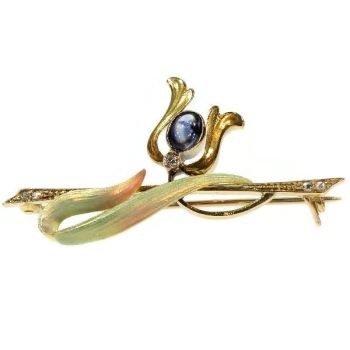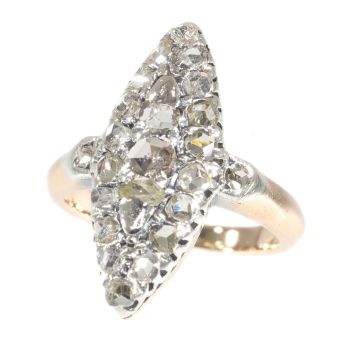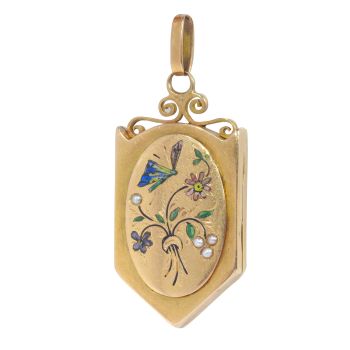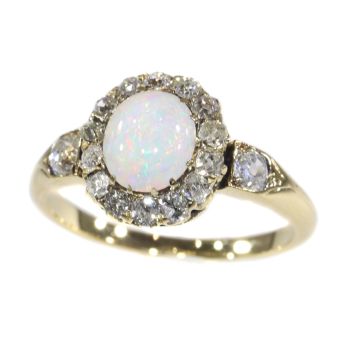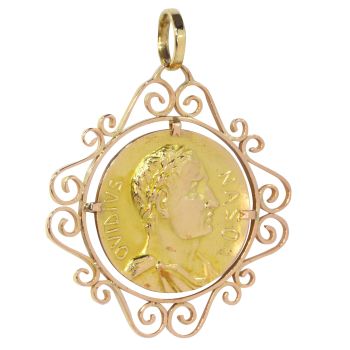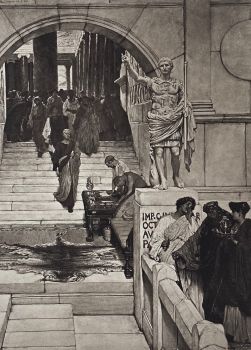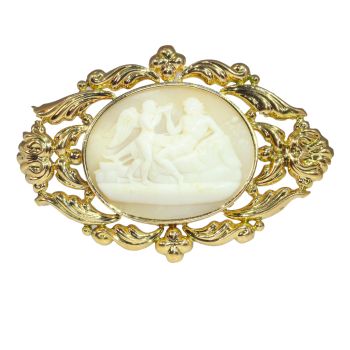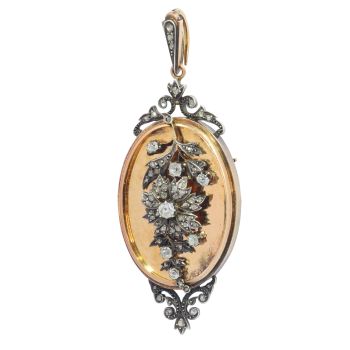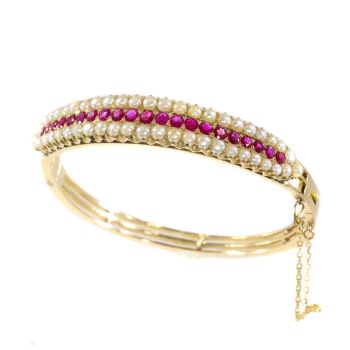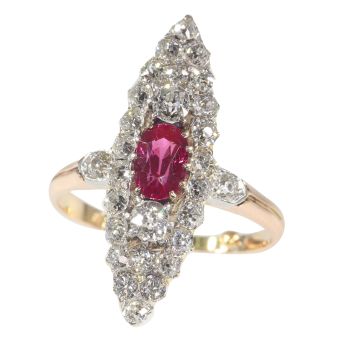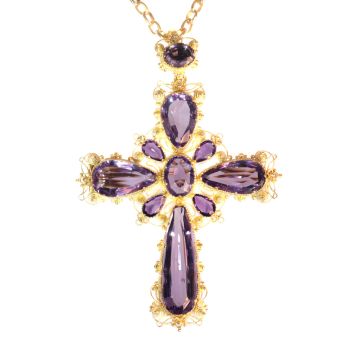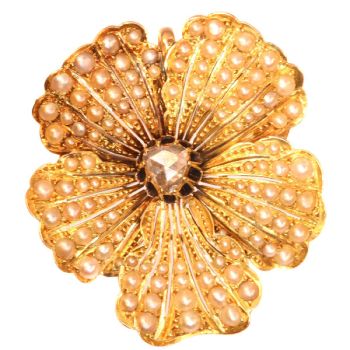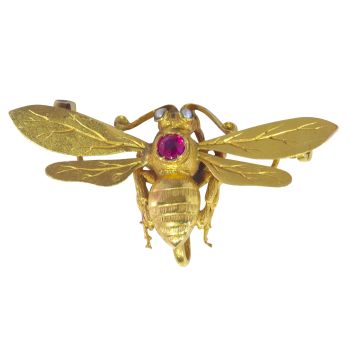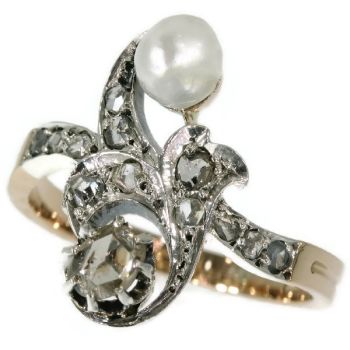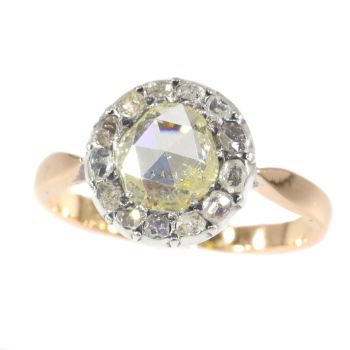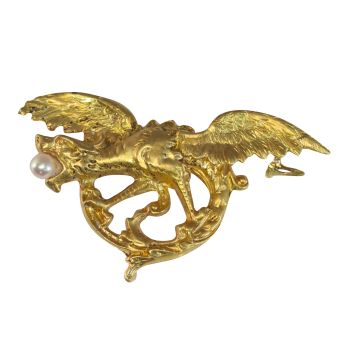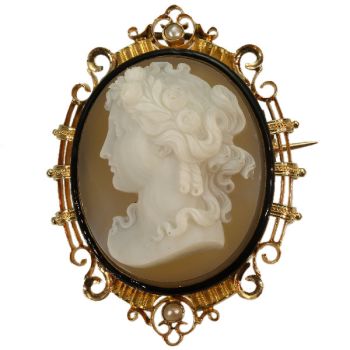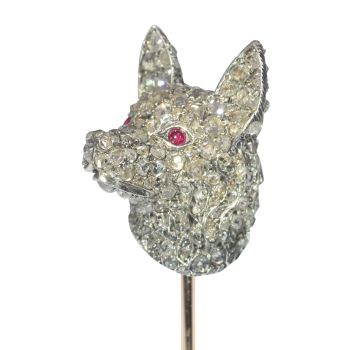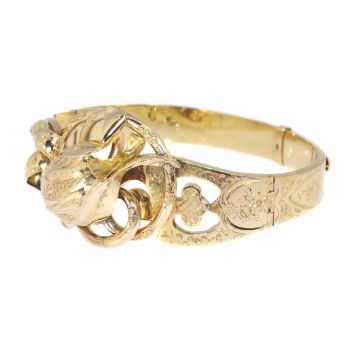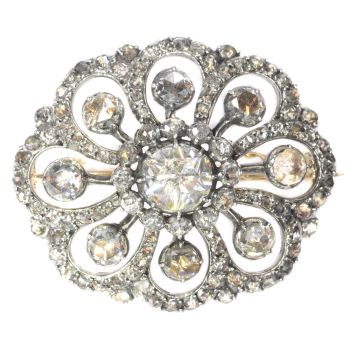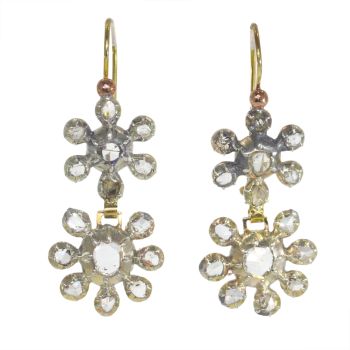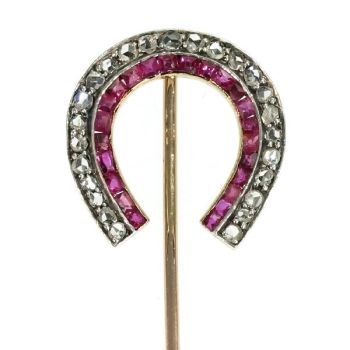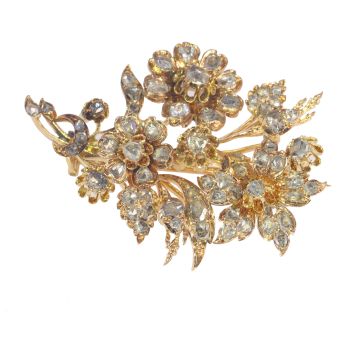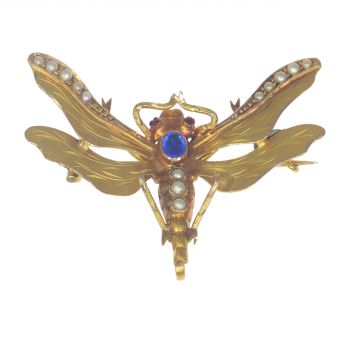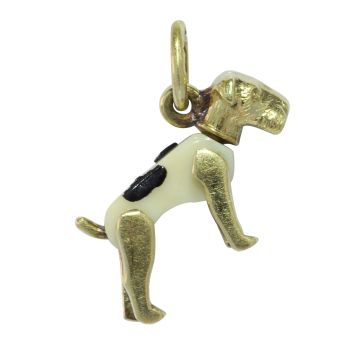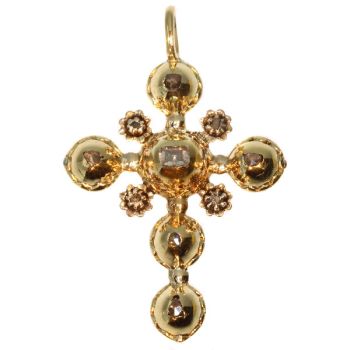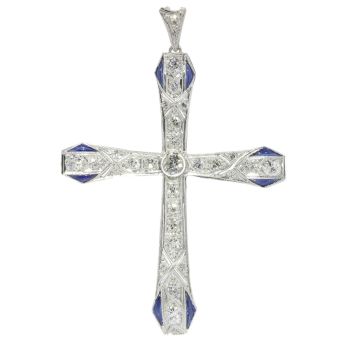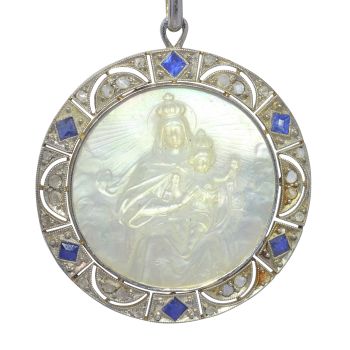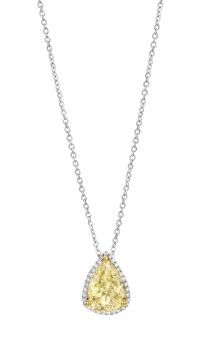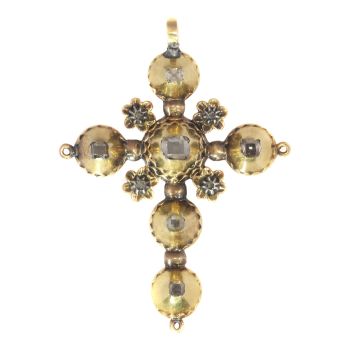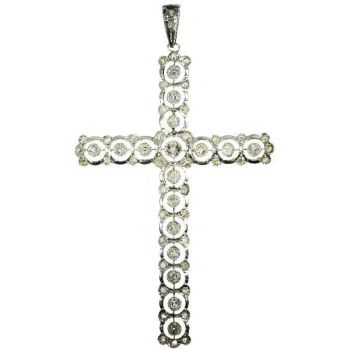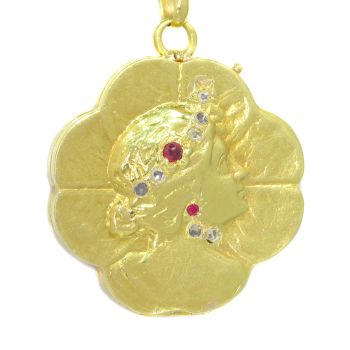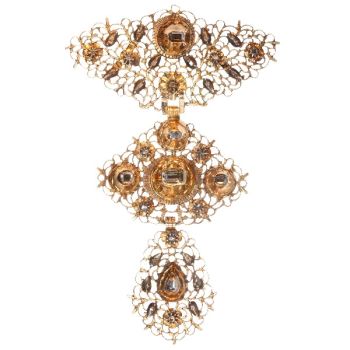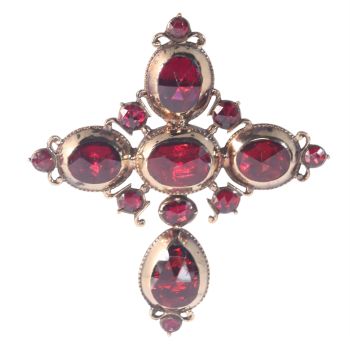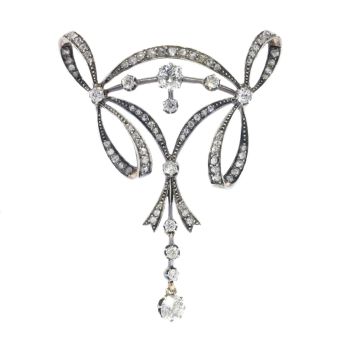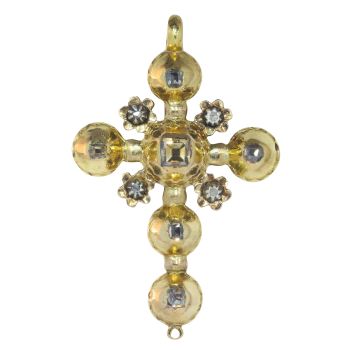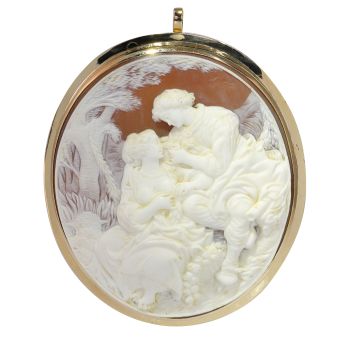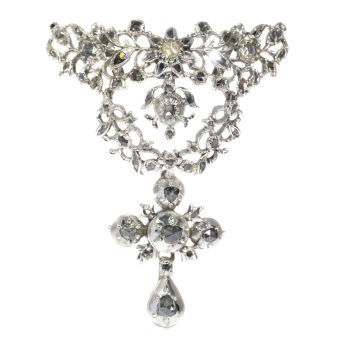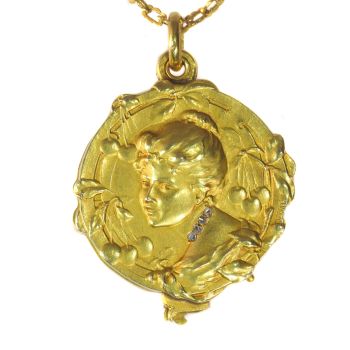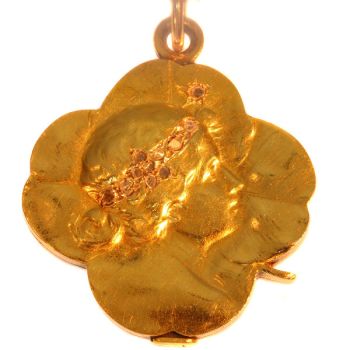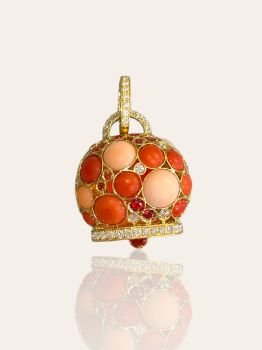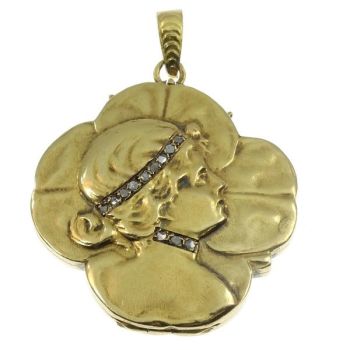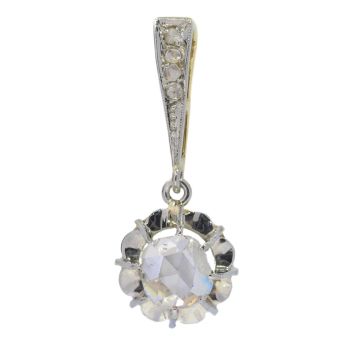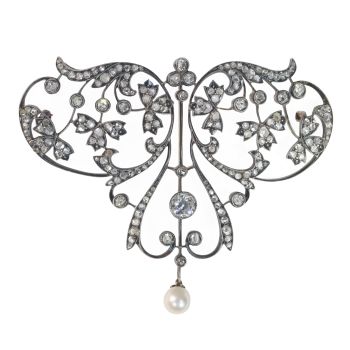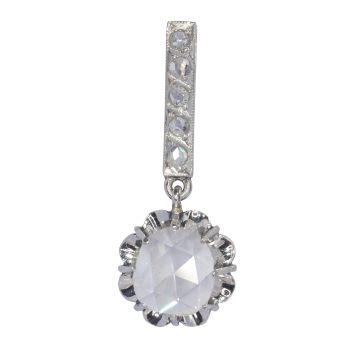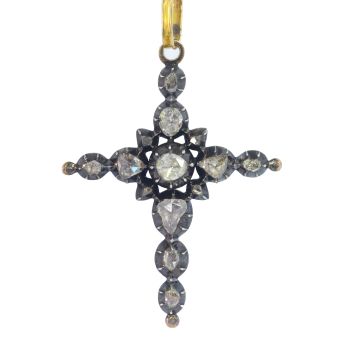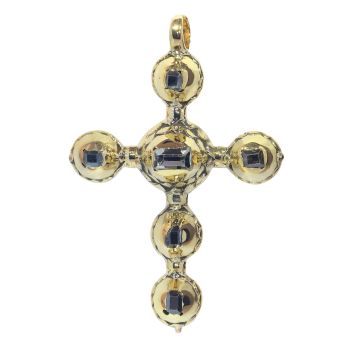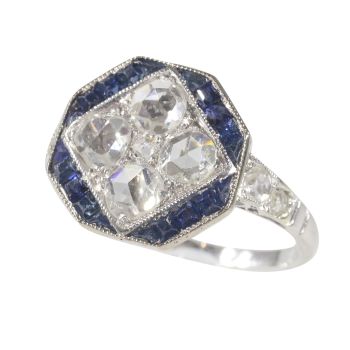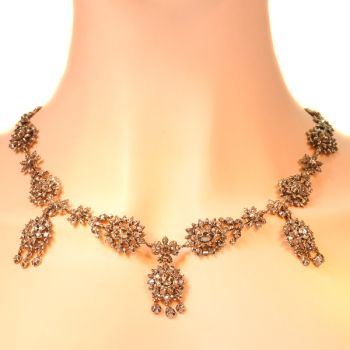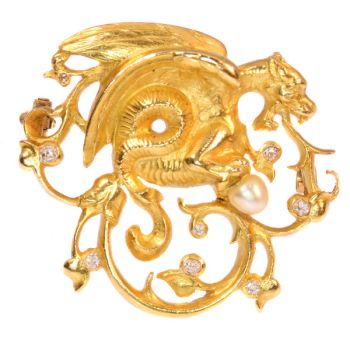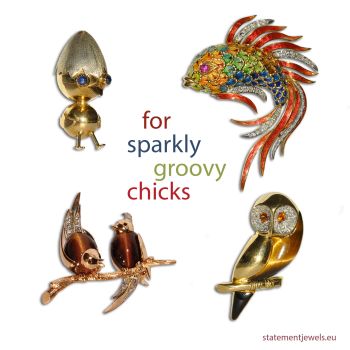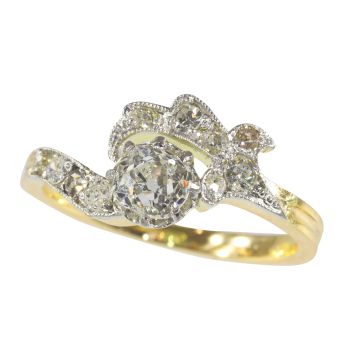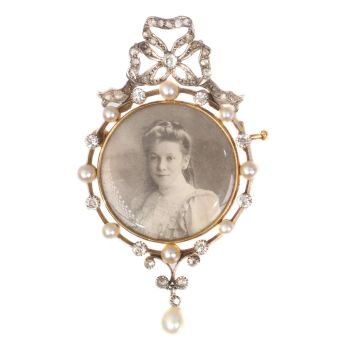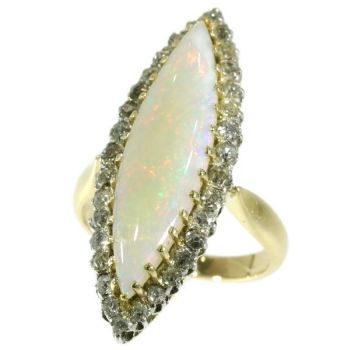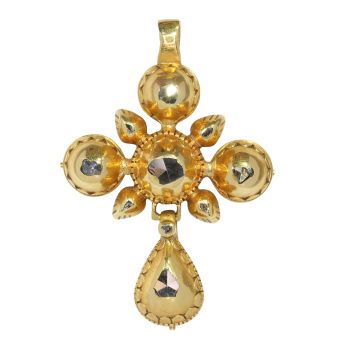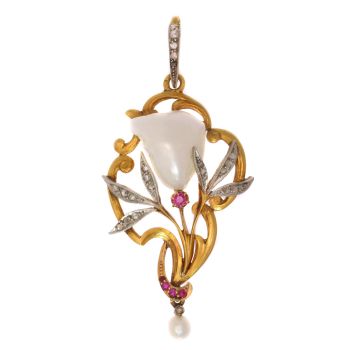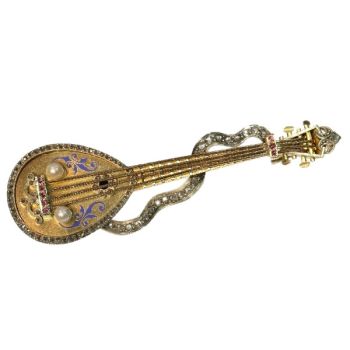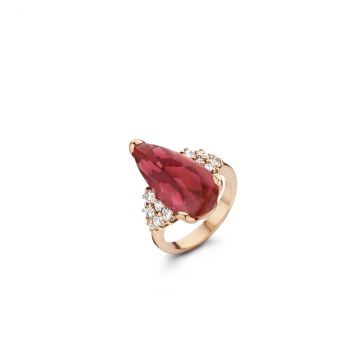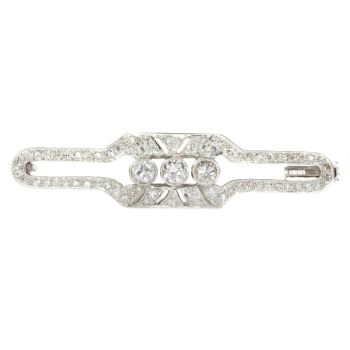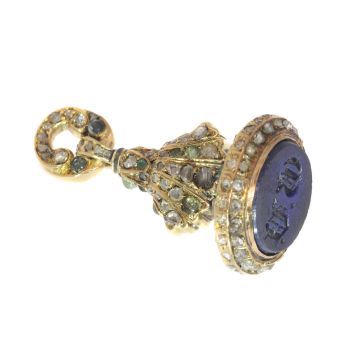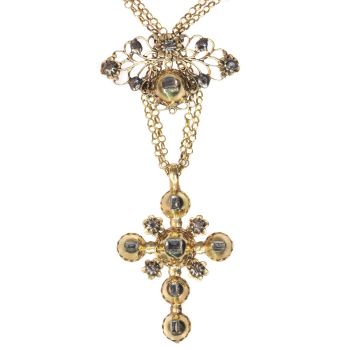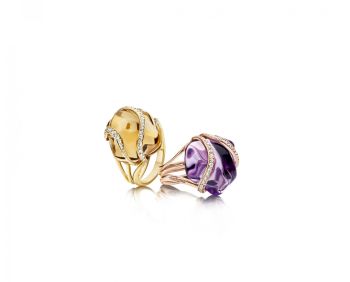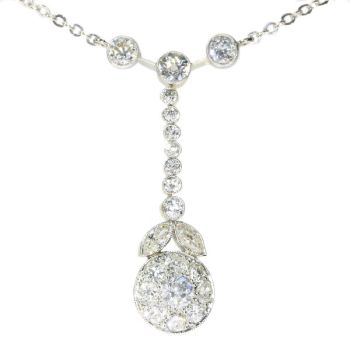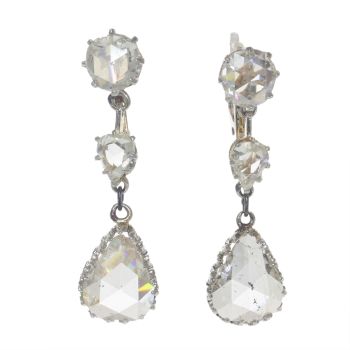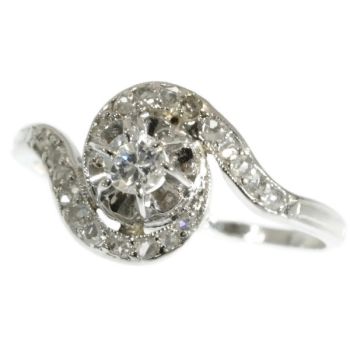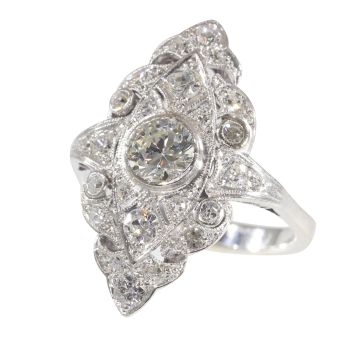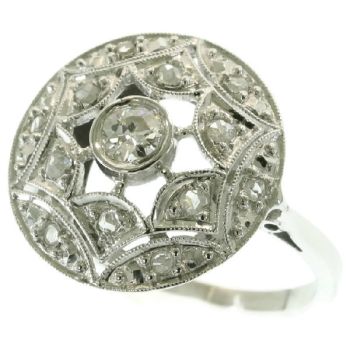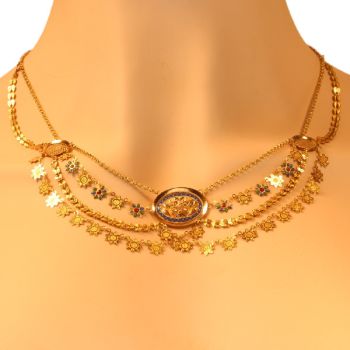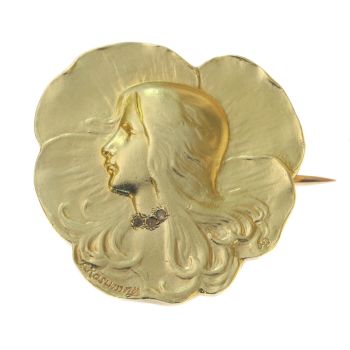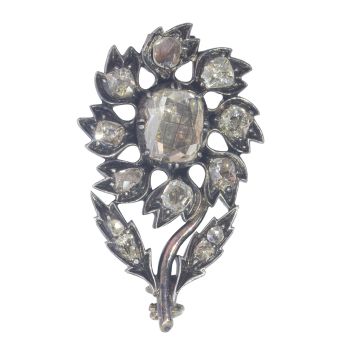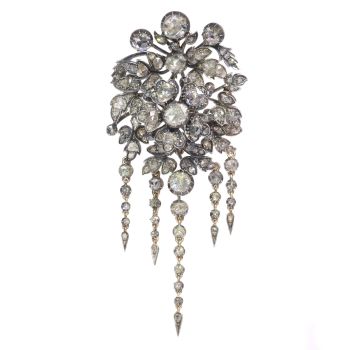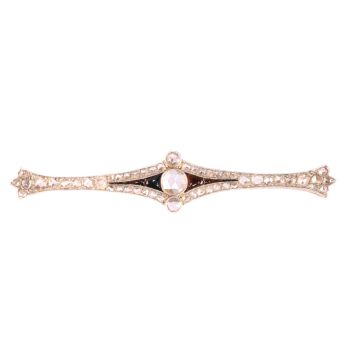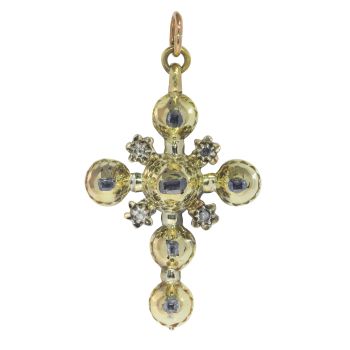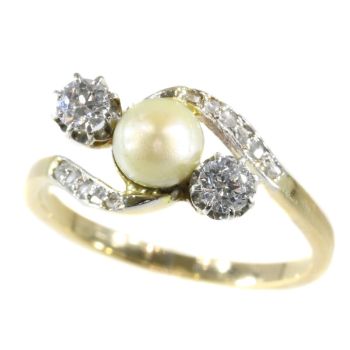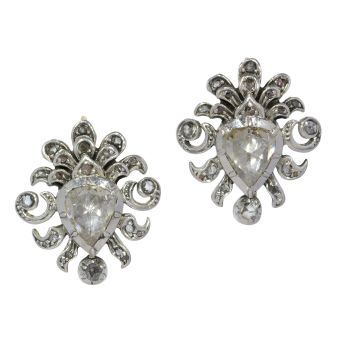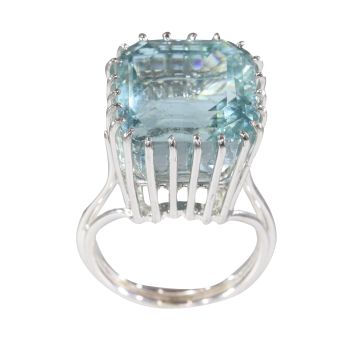An Heirloom to Cherish: Victorian Pendant with Rare Fancy Diamonds 1860
Unbekannter Künstler
DiamantGoldPerleEdelstein
€ 8.500
Adin Fine Antique Jewellery
- Über Kunstwerk
A striking example of Grand Victorian craftsmanship, this pendant, crafted in 18K red gold, features a delicately suspended central element adorned with three fancy brown diamonds, evoking a sense of timeless elegance. Above them, a charming fancy yellow diamond completes the composition, adding a subtle touch of romance. Set with an additional 31 old mine cut diamonds, the piece exudes opulence and sentimentality. The graceful curves, paired with a single drop pearl, bring forward the romantic andornate spirit of the Victorian era, allowing the wearer to feel deeply connected to the past, while creating new memories of their own.
Antique jewelry object group
pendant on chain
Condition
very good condition
more info on our condition scale
Country of origin
unknown
Style
Victorian - Victorian decorative arts refers to the style of decorative arts during the Victorian era. The Victorian era is known for its eclectic revival and interpretation of historic styles and the introduction of cross-cultural influences from themiddle east and Asia in furniture, fittings, and Interior decoration. Victorian design is widely viewed as having indulged in a regrettable excess of ornament. The Arts and Crafts movement, the aesthetic movement, Anglo-Japanese style, and Art Nouveaustyle have their beginnings in the late Victorian era.
See also: Victorian
more info on styles
Style specifics
The Grand Victorian Period - Experts divide the reign of Queen Victoria, also called The Victorian era (1837 - 1901) into three periods of about twenty years each; The Romantic Victorian Period (1837 - 1860), The Grand Victorian Period (1860 - 1880),and the Late or Aesthetic Victorian Period (1880 - 1901).
We consider this to be of the Grand Victorian Period.
This second Victorian period is famous for its ostentatious pieces set with pearls and diamonds (from South Africa). From ca. 1850 wealthy English had reported about jewelry from India and Japan, which heavily inspired the jewelers of this period. Thisperiod also corresponds with the death of Queen Victoria's husband King Albert making mourning jewelry (set with heavy dark stones) the type of jewelry specific for this period.
Period
ca. 1860
Events & facts of this era, poetry of this era, fashion of this era.
Material The pendant is 18K
red gold and the chain is 18K yellow gold (touchstone tested)
more info on precious metals
Extra information
The chain is of a more recent date than the pendant. This is not uncommon for a jewel over 100 years old, as chains are naturally subject to wear through regular use.
Diamonds
1 old brilliant cut diamond with an estimated weight of ± 0.02ct, colour fancy yellow, clarity si/i
Three old mine brilliant cut diamonds with an estimated weight of ± 0.30ct, colour fancy brown, clarity si
31 old mine brilliant cut diamonds with an estimated weight of ± 1.84ct colour and clarity F/H, vs/si
Total diamond count
35 pcs.
Total diamond weight
approx. 2.16 crt
- When we provide weights, colour grades, and clarity of diamonds, these are approximate unless otherwise stated, as we do not remove diamonds from their settings to preserve the integrity of the piece.
- All diamonds, regardless of their size or shape, in our vintage and antique jewellery are verified as 100% natural by the IJGC laboratory.
- We do not sell lab-grown (synthetic) diamonds.
Precious stones
One drop pearl
Birthstones
Diamond is the birthstone (or month stone) for April and pearl for June.
more info on birthstones
Hallmarks
No trace.
more info on hallmarks
Dimensions
pendant 4,48 cm (1,76 inch) x 2,82 cm (1,11 inch), length necklace 42,50 cm (16,73 inch)
see picture with a ruler in millimeters and inches
Weight
9,50 gram (6,11 dwt)
Adin Reference Nº
24263-0291
Copyright photography
Adin, fine antique jewellery
Additional information
our latest acquisitions
jewelry glossary
wall of fame
visit us in Antwerp
subscribe to our mailinglist
- Über Künstler
Es kann vorkommen, dass ein Künstler oder Hersteller unbekannt ist.
Bei einigen Werken ist nicht zu bestimmen, von wem sie hergestellt wurden, oder sie wurden von (einer Gruppe von) Handwerkern hergestellt. Beispiele sind Statuen aus der Antike, Möbel, Spiegel oder Signaturen, die nicht klar oder lesbar sind, aber auch einige Werke sind überhaupt nicht signiert.
Außerdem finden Sie folgende Beschreibung:
•"Zugeschrieben …." Ihrer Meinung nach wohl zumindest teilweise ein Werk des Künstlers
•„Atelier von ….“ oder „Werkstatt von“ Ihrer Meinung nach eine Arbeit, die im Atelier oder in der Werkstatt des Künstlers, möglicherweise unter seiner Aufsicht, ausgeführt wurde
•„Kreis von ….“ Ihrer Meinung nach ein Werk aus der Zeit des Künstlers, das seinen Einfluss zeigt, eng mit dem Künstler verbunden, aber nicht unbedingt sein Schüler
•"Art von …." oder „Anhänger von ….“ Ihrer Meinung nach eine Arbeit, die im Stil des Künstlers ausgeführt wurde, aber nicht unbedingt von einem Schüler; kann zeitgenössisch oder fast zeitgenössisch sein
•„Art von ….“ Ihrer Meinung nach ein Werk im Stil des Künstlers, aber späteren Datums
•"Nach …." Ihrer Meinung nach eine Kopie (jegliches Datums) eines Werks des Künstlers
• „Unterzeichnet …“, „Datiert …“. oder „Beschriftet“ Ihrer Meinung nach wurde das Werk vom Künstler signiert/datiert/beschriftet. Das Hinzufügen eines Fragezeichens weist auf einen Zweifel hin
• „Mit Unterschrift …“, „Mit Datum …“, „Mit Aufschrift ….“ oder „Trägt Unterschrift/Datum/Beschriftung“ ihrer Meinung nach die Unterschrift/Datum/Beschriftung von jemand anderem als dem Künstler hinzugefügt wurde
Sind Sie daran interessiert, dieses Kunstwerk zu kaufen?
Artwork details
Related artworks
- 1 - 4 / 12
- 1 - 4 / 24
- 1 - 4 / 24
- 1 - 4 / 24
- 1 - 4 / 12








